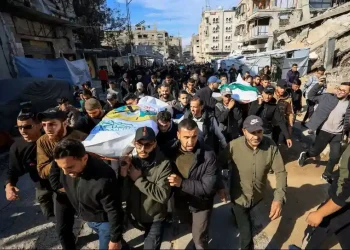Israel and Syria Agree to Ceasefire as Druze-Bedouin Clashes Escalate in Southern Syria
Tensions Rise in Sweida as U.S. Confirms Truce Between Israel and Syria
A top U.S. diplomat says Israel and Syria have agreed to a ceasefire after deadly clashes in southern Syria sparked international concern. The fighting, which has left nearly 80,000 people displaced, began as a local conflict between Druze militias and Bedouin tribes—but quickly spiraled out of control, drawing in both the Syrian government and the Israeli military.
The situation is still tense, with fresh violence reported even after the truce was announced.
What Triggered the Violence?
Clashes broke out last Sunday in Syria’s Sweida province between local Druze fighters and Sunni Muslim Bedouin tribes. Government troops stepped in but reportedly sided with the Bedouins, leading to accusations of bias and abuse.
In response, Israel launched airstrikes targeting Syrian forces, saying it was defending the Druze minority—many of whom live in Israel and serve in its military. Israeli strikes even hit Syria’s Defense Ministry in Damascus, a bold move that escalated the crisis.
A Ceasefire—But Fighting Continues
On Wednesday, the Syrian government agreed to pull its forces out of Sweida under a ceasefire mediated by the U.S., Turkey, and Arab nations. Druze leaders were left in charge of local security.
But by Thursday night, fighting between Druze and Bedouin groups had resumed. Syria’s interim president, Ahmad al-Sharaa, said Friday that a special government force would be sent back in to stop the clashes and restore order. The move came after talks between officials and Druze leaders, but the timing of the deployment remains unclear.
Humanitarian Crisis Grows
The conflict has caused a massive wave of displacement. The U.N. says nearly 80,000 people have been forced to flee their homes in just a week. Entire neighborhoods are without electricity or running water, and many roads are too dangerous to use.
“Health services are overwhelmed, and getting aid to Sweida is almost impossible right now,” said Adam Abdelmoula, the U.N.’s top humanitarian coordinator in Syria. While some trauma care supplies have reached nearby Daraa province, Sweida remains cut off.
To make matters worse, gunmen recently kidnapped a local head of the Syrian Civil Defense, also known as the White Helmets, as he was heading out to help evacuate a U.N. team.
More Fighters Join the Fray
The violence is now spreading beyond Sweida. Bedouin supporters from other parts of Syria have traveled to the province to join the clashes. In one case, a fighter from Deir ez-Zor province said they came to support what he called “the oppressed.”
Meanwhile, revenge attacks from Druze militias have pushed more families to flee, especially from Bedouin communities. Local officials warn the crisis is deepening by the day.
Old Tensions, New Crisis
Druze and Bedouin groups have a long and uneasy history in Sweida. The Druze are a religious minority that split from Shiite Islam over 1,000 years ago. Today, about half of the world’s Druze live in Syria, mostly in the south. Bedouins, who are Sunni Muslims, also live in the area and have clashed with Druze in the past over local disputes.
This latest round of violence reportedly began when a Bedouin group attacked a Druze man at a checkpoint—triggering a chain of revenge kidnappings and attacks.
Syrian researcher Ahmed Aba Zeid says there’s often no clear reason for these tensions. “The government used the latest incident to shift the balance in Sweida,” he said. “But it only made things worse.”
Calls for Calm and Unity
While Israeli Druze urged military support for their Syrian counterparts, Druze leaders in Lebanon rejected Israeli involvement. Sheikh Sami Abi al-Muna, the top Druze spiritual leader in Lebanon, warned that Israeli intervention “harms our history and identity.”
He and veteran Lebanese Druze politician Walid Joumblatt are urging all sides to respect the ceasefire and open a national dialogue.
Joumblatt has also called for an independent investigation into reported abuses by both Druze and Bedouin groups during the clashes.
What’s Next?
With the ceasefire hanging by a thread and fresh violence flaring up, it’s unclear whether peace will hold. Humanitarian needs are growing fast, but access remains blocked. International mediators are urging all sides to stop fighting and work together to avoid a deeper crisis.
The world is watching closely as Syria’s fragile truce faces its toughest test yet.
This article was rewritten by JournosNews.com based on verified reporting from trusted sources. The content has been independently reviewed, fact-checked, and edited for accuracy, neutrality, tone, and global readability in accordance with Google News and AdSense standards.
All opinions, quotes, or statements from contributors, experts, or sourced organizations do not necessarily reflect the views of JournosNews.com. JournosNews.com maintains full editorial independence from any external funders, sponsors, or organizations.
Stay informed with JournosNews.com — your trusted source for verified global reporting and in-depth analysis. Follow us on Google News, BlueSky, and X for real-time updates.














